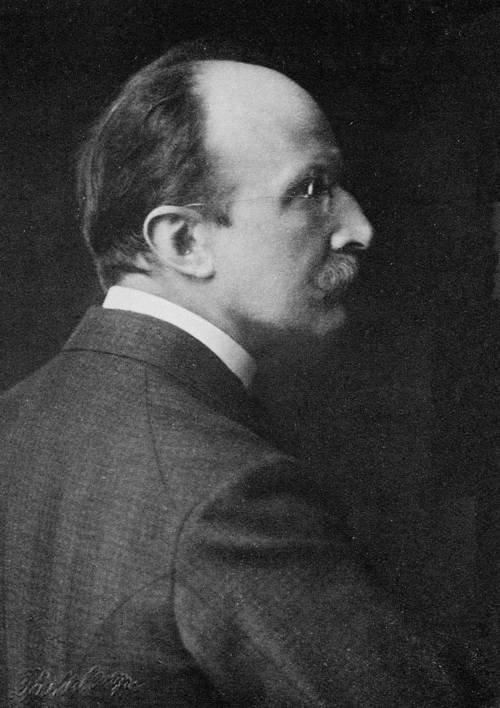
FAQ About Max Planck

Who was Max Planck?
Max Planck was a German physicist, considered one of the founding fathers of quantum theory. Born on April 23, 1858, in Kiel, Germany, he made significant contributions to the field of theoretical physics, and his work laid the foundation for quantum mechanics. Planck is most famous for his discovery of energy quanta, which led to the development of quantum physics. He was awarded the Nobel Prize in Physics in 1918 for his work on black-body radiation laws.

What is Max Planck best known for?
Max Planck is best known for his quantum theory introduction, particularly his finding that energy is quantized. This discovery, formulated in 1900, is considered a significant milestone in physics as it challenged classical Newtonian physics and led to the development of quantum mechanics. His work on black-body radiation and the Planck constant are pivotal in the study of quantum physics.

What is the Planck constant?
The Planck constant is a fundamental physical constant that plays a crucial role in quantum mechanics. It relates the energy of a photon to its frequency. The constant is symbolized by h and has a value of approximately 6.626 x 10-34 Js (joule-seconds). This constant is essential in the field of quantum mechanics and represents the quantization of energy levels.

How did Max Planck contribute to quantum mechanics?
Max Planck contributed to quantum mechanics by proposing that electromagnetic energy could be emitted only in quantized form, meaning in specific amounts rather than a continuous range. This idea, proposed in 1900, introduced the concept of energy quanta and marked the foundation of quantum theory. It fundamentally transformed the understanding of atomic and subatomic processes.

What is Planck's law?
Planck's law describes the spectral density of electromagnetic radiation emitted by a black body in thermal equilibrium at a given temperature. Essentially, it provides a formula to determine the intensity of radiation at different wavelengths for a body in thermal equilibrium. This law was crucial in addressing the ultraviolet catastrophe problem and supports the quantum theory of radiation.

When did Max Planck receive the Nobel Prize, and for what achievement?
Max Planck received the Nobel Prize in Physics in 1918 for his discovery of energy quanta. This was a fundamental breakthrough in theoretical physics, leading to the establishment of quantum mechanics, which explains the behavior of matter and energy at the atomic and subatomic levels.

What is the significance of Planck's discovery of energy quanta?
Planck's discovery of energy quanta was significant because it challenged the classical physics notion that energy changes are continuous. This groundbreaking idea revealed that energy changes occur in discrete amounts or 'quanta,' which laid the groundwork for quantum mechanics. It revolutionized the understanding of atomic and subatomic processes and explained phenomena that classical physics could not.

Did Max Planck have any notable collaborations?
Max Planck had numerous interactions and collaborations with other eminent scientists of his time. Notably, he played a role in supporting and promoting Albert Einstein's theory of relativity, inviting Einstein to Berlin, and was a key figure in establishing the prestigious Kaiser Wilhelm Society (now the Max Planck Society). Though not formal collaborations, these involvements significantly influenced the scientific community.

How did Max Planck's work affect modern physics?
Max Planck's work profoundly affected modern physics by establishing the basis of quantum mechanics, fundamentally shifting the understanding of physical processes at microscopic scales. Quantum mechanics has since become a cornerstone of modern physics, affecting fields ranging from chemistry to electronics, and has led to numerous technological advancements, including semiconductors and quantum computing.

What challenges did Planck face with his quantum theory?
Initially, Max Planck himself was skeptical of the implications of his quantum theory as it contradicted the existing classical physics paradigms. He faced the challenge of convincing the scientific community of its validity, as the idea of quantized energy was radically different from the then widely accepted theories. However, as more experimental evidence supported his theories, particularly Einstein's photoelectric effect, they gradually gained widespread acceptance.

Where did Max Planck conduct his most famous research?
Max Planck conducted most of his significant research at the University of Berlin, where he worked from 1889 to 1928. During his tenure, he developed his groundbreaking theories on black-body radiation and quantum mechanics, establishing himself as a leading figure in theoretical physics.

What personal challenges did Max Planck face during his life?
Throughout his life, Max Planck faced several personal challenges. He lived through the First and Second World Wars and suffered significant personal losses, including the tragic deaths of his two sons in different circumstances and the execution of one of them due to his involvement in an assassination plot against Adolf Hitler. Despite these hardships, Planck continued his scientific work and leadership in the scientific community.

What organizations did Max Planck help to found or contribute to?
Max Planck played a crucial role in founding the Kaiser Wilhelm Society, which was established to promote scientific research in Germany. In 1948, this organization was restructured and renamed the Max Planck Society in his honor. The society has since become one of the world's leading organizations for scientific research.

How is Max Planck honored in the scientific community today?
Max Planck is honored in the scientific community through numerous institutions and awards bearing his name. The Max Planck Society, a prominent research organization, is named after him, and numerous Max Planck Institutes around the world conduct cutting-edge research in various scientific fields. Additionally, the Max Planck Medal is awarded by the German Physical Society for achievements in theoretical physics.

What influence did Planck have on his contemporaries and succeeding scientists?
Max Planck had a significant influence on his contemporaries and succeeding scientists by pioneering quantum theory, which generated a paradigm shift in physical sciences. His work influenced notable figures like Albert Einstein and Niels Bohr, prompting further advancements in quantum mechanics and nuclear physics, effectively shaping the course of modern scientific thought.

What was Max Planck's educational background?
Max Planck studied at several prestigious institutions. He began his education at the Ludwig Maximilian University of Munich, later attending the University of Berlin where he was influenced by prominent physicists such as Hermann von Helmholtz and Gustav Kirchhoff. It was during this time that he developed an interest in thermodynamics and theoretical physics, eventually leading to his groundbreaking research.

Did Max Planck influence Albert Einstein?
Yes, Max Planck had a profound influence on Albert Einstein. Planck was one of the first established scientists to recognize and support Einstein's theory of relativity, which played a critical role in Einstein's eventual worldwide recognition. Planck's work on quantum theory also provided a foundational framework that Einstein used to further develop concepts such as the photoelectric effect.

How did Planck's quantum theory lead to technological advancements?
Planck's quantum theory led to numerous technological advancements by providing the scientific foundation for understanding electronic and atomic behaviors. Quantum mechanics, derived from his theories, has been instrumental in the development of technologies such as semiconductors, lasers, and quantum computing. These technologies have, in turn, powered innovations ranging from modern computing to medical imaging techniques.

What were Max Planck's views on science and philosophy?
Max Planck held a deep appreciation for both science and philosophy, often reflecting on the philosophical implications of scientific discoveries. He believed that science and religion were not mutually exclusive but instead complementary in understanding the universe. Planck's philosophical thoughts centered on the belief in a higher order and the role of scientific inquiry in deciphering universal laws.

In what ways is Max Planck's legacy preserved today?
Max Planck's legacy is preserved today through institutions, awards, and significant scientific contributions that continue to shape modern physics. The Max Planck Society and its numerous institutes work on cutting-edge research and innovation across various scientific disciplines. His pioneering efforts in quantum theory remain a cornerstone of theoretical physics, influencing ongoing research and technological developments worldwide.
